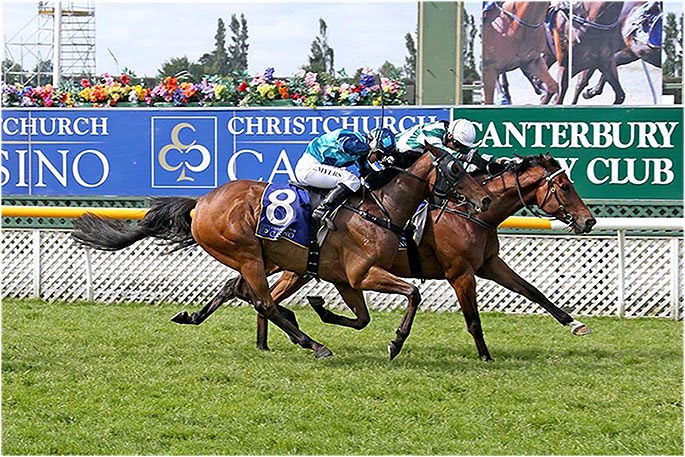New Zealand’s Horse Racing is Recovering from COVID-19

The horse racing event in New Zealand is a lucrative business for various individuals. Various people depend on horse racing as a source of income. The novel Coronavirus (Covid-19) has disrupted the horse racing and its related programs massively. When the pandemic visited NZ, the country implemented Level 4 Alerts, which ultimately locked down the country. The country has, however, lowered the alert level to Level 3.
The lowering of the alert level has prompted the New Zealand Racing Industry Transition (RITA) to develop a new transitional racing program for 2019-20 seasons. The body has also revealed that greyhound racing is commencing soon.
Hard Experience for Racing Industry During COVID-19
Multiple racing sector leaders are working jointly to minimize the threat that Covid-19 poses to the industry. The cancellation of racing activities had adverse effects on the sporting options that people have. Many people and racing organizations get their income during the match-day. The cancellation of these scheduled events due to the pandemic means that the organizations, participants, and auxiliary businesses may get their pay.
The animals also need to be tended to by employees. The incomes of the employees come when the animals have taken part in racing. On the other hand, New Zealanders are continuing to play at casinos with real money during sports betting is closed. However, due to the current situation, animal owners may find it challenging to retain their workers. The caring of the racing animals has various aspects. For instance, animals need to be cleaned, exercised, and fed.
These activities are critical as they make the animals fit for sporting. Workers need to be paid to continue delivering the above services. The pandemic may complicate the situation because animal owners may not pay the workers.
Already, TAB has come up with the recommendation of retrenching around 30% of the workforce. In April 2020, the sporting body had a decreased return of 47% than what was expected. Measures that have been taken to keep the industry afloat, such as sending staff on leave and salary reductions, are not sufficient to mitigate the effects of Covid-19 on the industry. TAB further proposes to retain only 160 full-time workers and 70 others on a contract basis.
Plans to Organize a Racing Calendar

RITA has come up with a newly revised calendar that captures the racing events for the current season due to the lowering of the country’s level of alertness. According to the new calendar, harness racing is scheduled for May, 29 and thoroughbred racing is taking place on Jul 3. The key highlights of the calendar are that tracks will be reduced to comply with the government’s measures of controlling the pandemic.
According to the RITA schedule, greyhound racing will take place on May 5, which is a week earlier than the proposed date before the lockdown. According to the new calendar, there will be eight greyhound meetings and further harness meetings on June 7. The calendar indicates that the commencement times for the two events will be altered because of Coronavirus. The New Zealand Metropolitan Trotting Club will be conducted at night in line with the government measures.
The return-to-racing protocols have been endorsed by WorkSafe, which is the critical health safety regulator in New Zealand. The racing code and other key stakeholders will manage the implementation of the protocols. The relevant codes will also control any regional travel limitations. The new calendar of events comes against the backdrop of some betting firms being offered the green light to start reopening their counters and convenience stores. The other stores selling these tickets will, however, remain closed. Many of these tickets can be purchased online, at the petrol stations and dairies.
The current season’s racing calendar has multiple alterations from the previous ones. For the first time, 42 meetings have been cut from the program. Additionally, there will be no racing at 14 venues. Other proposals by RITA are that meetings should take place near the sites where the greyhounds and horses are being coached. This has the effect of cutting costs associated with long-distance travel.
The revitalized racing industry has been adversely affected by COVID 19. Because of the meager resources, some racing venues may not be licensed, meaning that they may get the funds. Because of lowering the alertness levels, the racing program is out and has significant changes compared to the previous ones.
[scriptless]

06/07/2023 @ 12:55 pm
Hi. Feel free to email info@westlondonsport.com
Thanks
06/07/2023 @ 12:32 pm
Hello,
Our team is keen on exploring advertising options with your platform. Specifically, we’re considering purchasing a text ad on your homepage.
Could you please share your pricing structure for this?
Best regards,
Isabella